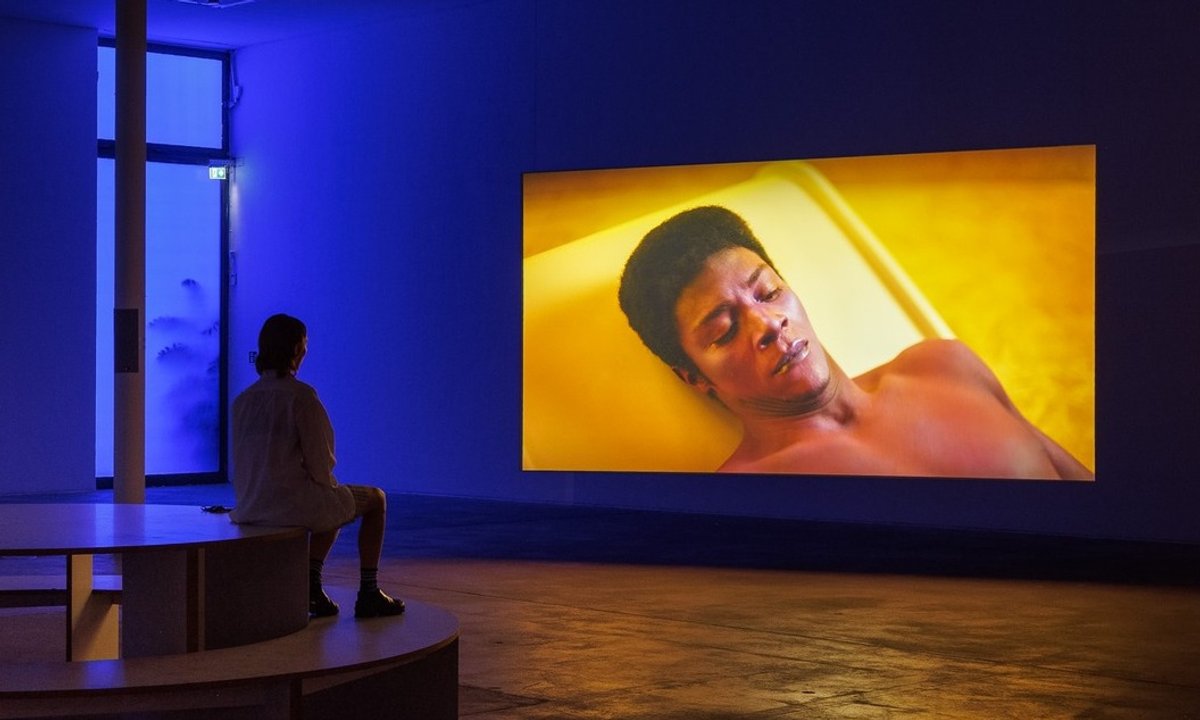Clube Amarelo by Luiz Roque, part of the exhibition Estufa (2024) at the KW Institute for Contemporary Art
courtesy KW Institute for Contemporary Art (Instagram)
The Berlin city-state government pressed ahead with cuts to its culture budget last week (19 December), despite outcry and protests from the sector over the past few weeks. The city’s new spending plan for 2025 will see arts and culture funding reduced by around €130m—12% of its budget—prompting fears that some cultural institutions will have to close.
Many say Berlin is now at risk of losing its status as a culture capital. “Culture and clubs bring people to Berlin. They don’t come here for the food, they come here for the history and the culture,” says Emma Enderby, the director of the non-profit KW Institute for Contemporary Art. She notes that the full budget has still not been communicated to organisations and may not be until mid-January. “It’s still very unclear,” she adds.
Berlin’s mayor Kai Wegner, a politician with the right-wing Christian Democratic Union, defended the budget plan, saying Berlin still has a “record budget” of €40bn and that the savings are not just about balancing the books but for the “future of Berlin”. Blaming the “green dreams” of the city’s former left-wing administration, Wegner says that “we need a change of mentality in many areas, including culture”.
For many arts institutions, cuts will now have to be made immediately. “It’s very short notice, it also seems very short sighted,” Enderby says. “In Berlin, culture costs around 2% of the overall economy, yet they’re cutting us between around 10% and in some cases 50%.” At her institution, the difficult decision has been made not to renew some contracts. “We are letting certain positions go and closing certain programmatic initiatives, such as one of our mediation programmes,” Enderby says.
As Paul Spies, the co-president of the Berlin Museums Association and former director of the Stiftung Stadtmuseum Berlin, points out, organisations may now have to cancel some contractual obligations, meaning they will incur more costs in the long run, particularly those who are in the middle of building projects. “Some institutions will have reserves they can use to overcome the initial drop in funding, but the majority don’t have much of a buffer,” Spies says.
Among the services most at risk of being phased out are diversity programmes, outreach and education along with IT support. “It was initially announced that diversity [programmes] were being completely cut, but there was such a backlash that it has been reinstated but at a very low level,” Spies says.
Job security is now a major concern at many organisations, while others say that the cuts are likely to have a chilling effect on museum programmes, with institutions less likely to take risks with more political exhibitions.
“It’s a very bad decision—pennywise and pound foolish in every sense,” Spies says. “And it’s been done so bluntly and without input from the cultural department. It doesn't seem that the Senate has listened to the specialists about what is possible and what is not possible.”
Patricia Rahemipour, the co-president of the Berlin Museums Association and director of the Institut für Museumsforschung, says the cuts have divided the cultural scene in Berlin. “The Senate has made a division between those who produce culture such as theatres or opera and the museum landscape,” she says. “One of the biggest struggles for museums is our collections, which cost us 80% to 90% of our budgets. These are fixed costs, which means that programmes and exhibitions have to take a big hit.”
Some say they have been advised to follow a US-style philanthropic model, but, as Enderby points out, German cultural institutions are structured very differently. “We can’t form an endowment, which is how American institutions survive—this is illegal for publicly funded institutions in Germany,” she says. “Most institutions can’t even carry funds across financial years. So, they would have to change the whole legal system in Germany to be able to support institutions to follow the US model.” Many organisations, including KW, don’t have dedicated development departments, which oversee individual and corporate giving.
While museums have been hard hit, artists are also going to feel the brunt of the cuts. As Enderby puts it: “Artists are going to be hugely impacted, as many initiatives like studio spaces and residences that support them are also being removed or cut—which will completely change the attractiveness of coming to Berlin, an increasingly expensive city to live in.”

